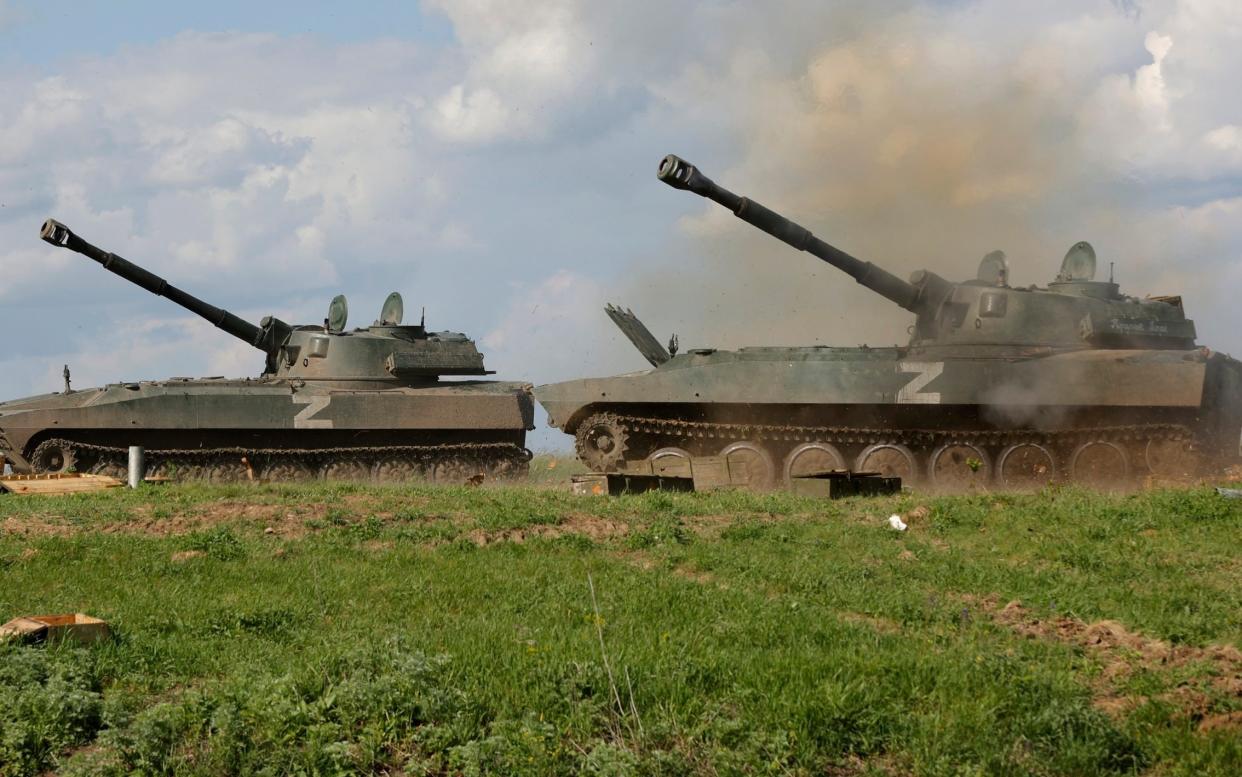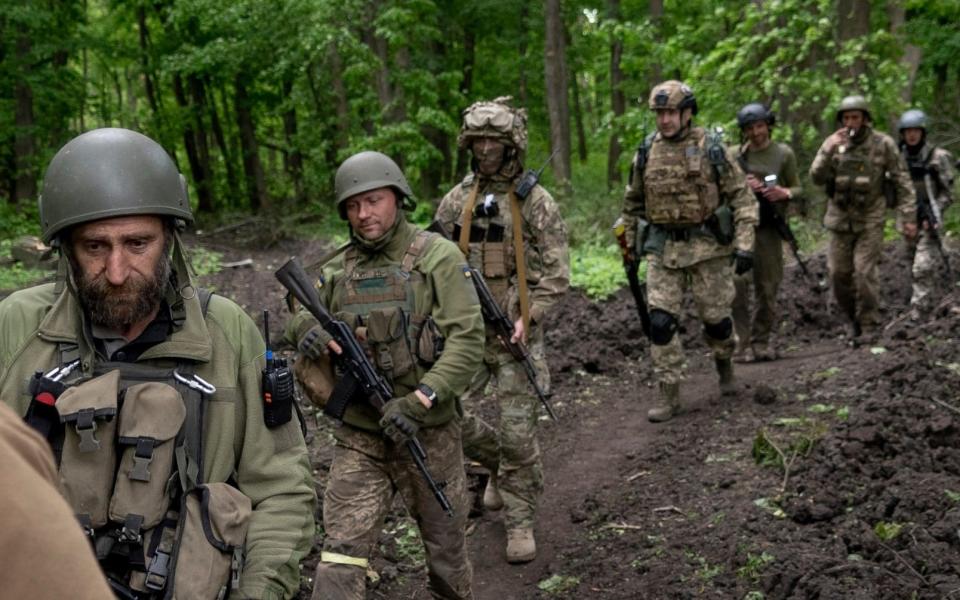Western resolve set to be tested as key US and EU figures want Ukraine to cede territory

It is the greatest triumph of an underdog since David slew Goliath: Ukraine's defeat of Russia at Kyiv and Kharkiv have revealed Russia as a paper tiger, the collapse of Mr Putin's army is inevitable and Ukraine can win the war if only the Western alliance holds its nerve.
Or is that nothing but a fantasy, out of touch with the cold realities of the balance of power, Russia's nuclear status and its battlefield successes on the southern front?
Isn't the inevitable outcome of the war a grotty compromise that preserves Ukrainian sovereignty, but cedes Russia some territory? And if so, shouldn't the West push Kyiv to accept that reality before more lives are lost?
That was the argument laid out in an editorial in the New York Times - sparking uproar in Kyiv amid growing fears about the resolve of elites in both the United States and Europe to see the conflict through.
The piece, attributed to the paper’s Editorial Board, argued that Russia is too strong for Ukraine to defeat decisively on the battlefield; that the realistic outcome of the war will involve territorial concessions from Ukraine; and that President Joe Biden should make this clear to Volodymyr Zelensky sooner rather than later - including by placing clear limits on US support for Kyiv.

Despite Ukraine’s stunning successes around Kyiv and Kharkiv, “a decisive military victory for Ukraine over Russia, in which Ukraine regains all the territory Russia has seized since 2014, is not a realistic goal,” the newspaper wrote.
Ultimately, it said: “It will be Ukrainian leaders who will have to make the painful territorial decisions that any compromise will demand.”
Officials in Kyiv reacted with unconcealed fury.
The arguments laid out in the editorial reflect a debate that raged in Washington foreign policy circles in the run up to war.
Then, most experts assumed Ukraine was certain to lose even with Western military assistance.
Forcing a diplomatic solution that saved lives would therefore be preferable to risking a US military confrontation with Russia - even if it meant pushing the Ukrainians to accept unpalatable concessions on the stalled Minsk peace agreements, some argued.
It was a view with traction in Washington.
Joe Biden now appears to have thrown his weight behind the previously unthinkable goal of a Ukrainian victory - pushing through vast financial assistance bills and green-lighting deliveries of increasingly powerful weaponry.
It is a goal backed by allies including Britain and Poland.
But the New York Times article shows elements of the American establishment are still not convinced. And they are not alone.
Earlier this month Mr Zelensky hinted, with some irritation, that Emmanuel Macron, the president of France, had asked him to give up land in exchange for peace.
Mario Draghi, the Italian prime minister, and Olaf Scholz, the chancellor of Germany, have also recently talked of seeking a “ceasefire” - something that would leave Russian troops on Ukrainian territory and increase the chances of Mr Putin retaining captured land during peace talks.
Mr Zelensky has conceded that the war will eventually end with talks - but says he wants Russians out of Ukraine first and has ruled out territorial concessions.
Interestingly, it is not only Ukrainians appalled by the idea of compromise.
One Russian nationalist commentator on the war responding to the New York Times article warned that the suggested settlement would merely allow the West and Ukraine to rearm for another war later. There can be no stopping now, he urged: the war must continue.
That is exactly what Ukrainian officials fear Russia would use a ceasefire for. And many believe there is no reason to stop fighting when they have the upper hand.
The head of Ukrainian military intelligence has publicly asserted that the tide of the war will turn over the summer, and that Ukraine will retake its lost territories.
Perhaps the war will end in some kind of compromise. But there is much more fighting to be done before either side will accept one.

 Yahoo News
Yahoo News 
